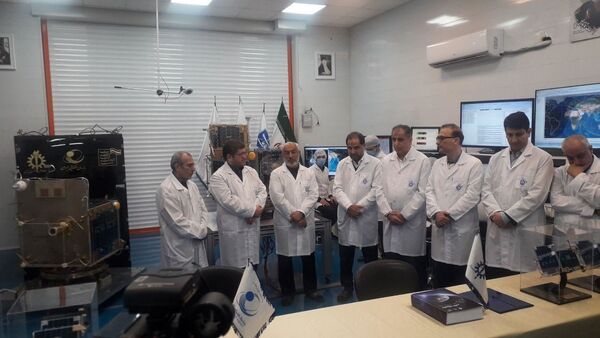"The launch vehicle successfully launched the Zafar satellite into space, but the rocket could not gain the necessary speed to put it into orbit. Necessary optimization work will be carried out for the next launch", Hosseini said in a statement.
Iranian Minister of Information and Communications Technology Mohammad-Jawad Azari Jahromi, who oversees the satellite's development, admitted that the launch failed.
"Today 'Zafar' satellite launch failed. Like many scientific projects, Failure happened", the Minister wrote on Twitter, listing the failed launches of other launch vehicles, including Russia's Proton-M.
Today "Zafar" satellite launch failed. Like many scientific projects, Failure happened. FALCON 9, Juno II, ATLAS, PROTON M, ANTARES are just few samples of US launch failures.
— MJ Azari Jahromi (@azarijahromi) February 9, 2020
But We're UNSTOPPABLE! We have more Upcoming Great Iranian Satellites! 🛰
In the previous attempt in January 2019, Iran failed to launch several satellites into orbit. That attempt was condemned by a number of Western countries, which believe that the actions of Iran do not comply with UN Security Council Resolution 2231. The United States insists that the document forbids Iran to launch rockets, while Russia says that the resolution's precise phrasing simply urges Tehran to refrain from doing so.


